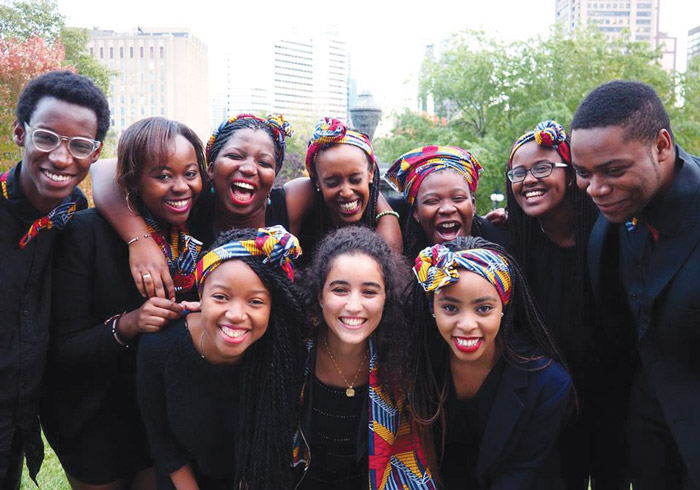McGill is an acclaimed institution that attracts students from all over the globe, as evidenced by the number of cultural associations present at the university. However, the international identity of the university has not always been present. Anne-Sophie Tzeuton, U3 Political Science student and VP External for the McGill African Students Society (MASS), explained the incremental growth of MASS throughout the years.
“MASS was started in the 1960s,” Tzeuton said. “It started very small since the population of African students at McGill was limited. It’s been growing steadily since and found its peak in the early 2000s.”
MASS hosts various social and informational events in hopes of promoting African culture to educate students across campus. Recently, it hosted a three-day conference and brought in speakers from Africa and the U.S. to talk about topics ranging from female empowerment to the legitimacy of Africa’s growth. Past social events include ‘The Anioula: A Black and White Charity Banquet,’ one of its annual events that brought together African and non-African cultures alike, with various cultural dishes and performances. Mass’ ultimate goal is to create a community across McGill where all individuals feel welcome, regardless of their culture.
“We have ties and contacts with a lot of African and black associations throughout McGill and Montreal, as well as having active alumni,” Tzeuton said. “We are definitely not in competition, and mostly try to promote each others events, and make sure we are not hosting [the] same [events].”
Tzeuton explained how MASS was initiated, and why she believes the association is important and should be present in all universities.
“In the past, I think the African population was so small that it was necessary to promote our culture,” she said. “Today, I believe that not having such associations would demonstrate a complete ignorance of the diverse cultural backgrounds our student body has.”
However, Tzeuton said she still feels that perceptions of Africa stray from the truth, and that she wants to help fight these stigmas with MASS.
“There are still much too many stigmas around African culture,” she said. “I’m constantly aware of how ignorant people are when it comes to their image of Africa. Too many people still see the continent as only synonymous with war, poverty, and sickness.”
On a personal note, Tzeuton explained how coming to Montreal from France and engaging with such a strong community has helped her reconnect with her African heritage and grow as a person.
“I’ve learned so much about my culture being in contact with [the] African youth who actually want to improve things and change the negative perceptions linked with the African culture,” she said. “I feel that growing up, I was deprived of all this knowledge about my African heritage and this has changed incredibly since coming to Montreal.”
Tzeuton stressed the desire to see Africans as well as non-Africans become members and join MASS’ events, believing that the underlying role of the association is to promote diversity.
“People have to be constantly reminded that the club is not exclusively for Africans,” Tzeuton said. “We understand that it is difficult to be a minority, but non-Africans usually love our events once they diverge from their comfort zone. We want people to come and appreciate a culture that we are so proud of. At least if they do have questions they should come to us instead of keeping them to themselves.”
Saul Muskin, U3 International Management major, applauded the creation of a club to facilitate inter-cultural dialogue.
“I think it’s cool that a club like [MASS] exists and it’s great that Africans and non-Africans can celebrate African culture together through their events,” he said.
Ines Blondet, U3 double concentration in International Business and Marketing, also commented on the positive nature of the club.
“I really loved [MASS]—they have amazing events. I’ve been to their African party and I loved the dancing,” she said. “I’m thinking of going to the Gala since they have a ton of performances, dancing, theatre, and singing.”
For the future, Tzeuton said that she wants to see MASS organise events that target a broader audience.
“I’d like to see more cultural events at MASS, more chill events like having an African movie night, or dance classes that would help non-Africans feel less self-conscious about coming to our events,” Tzeuton said. “Overall, I’d like for the association to host events that target a broader audience.”







